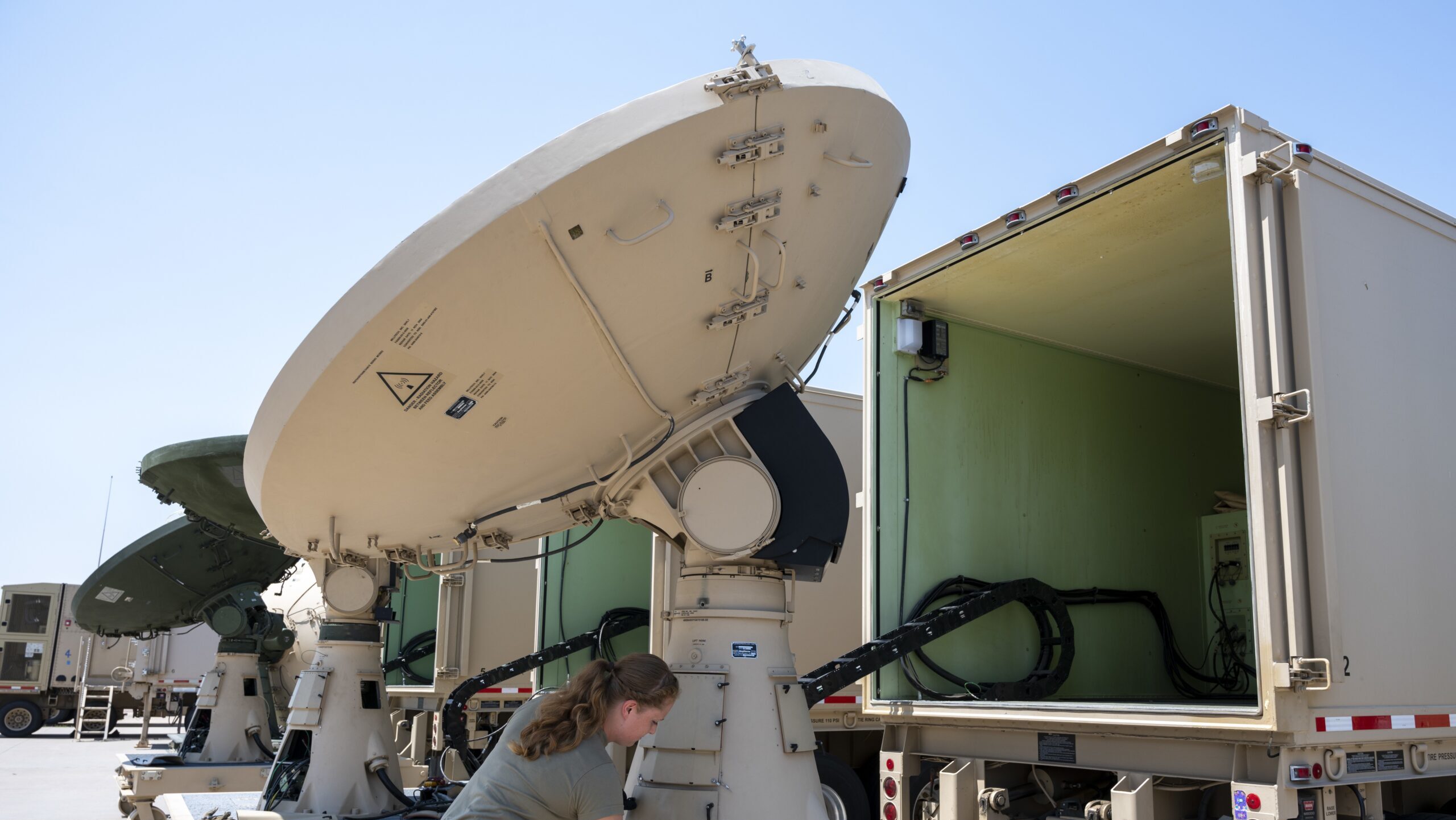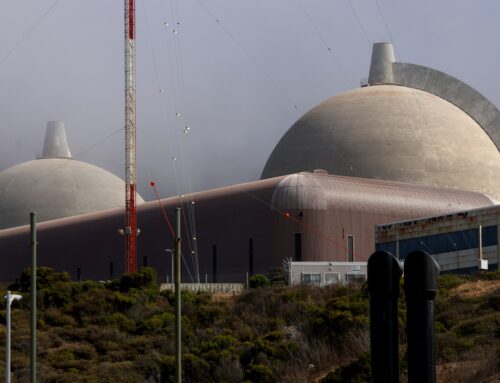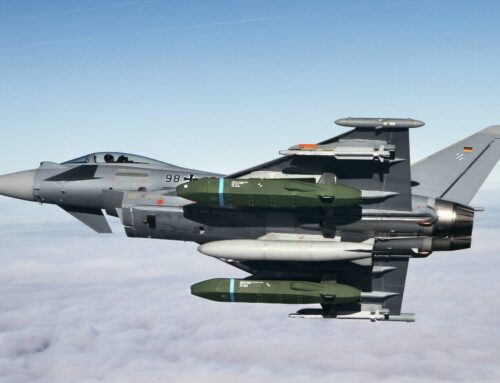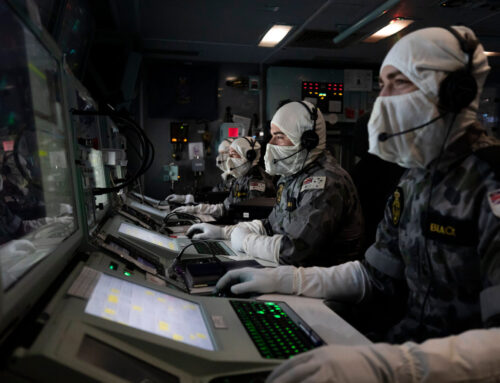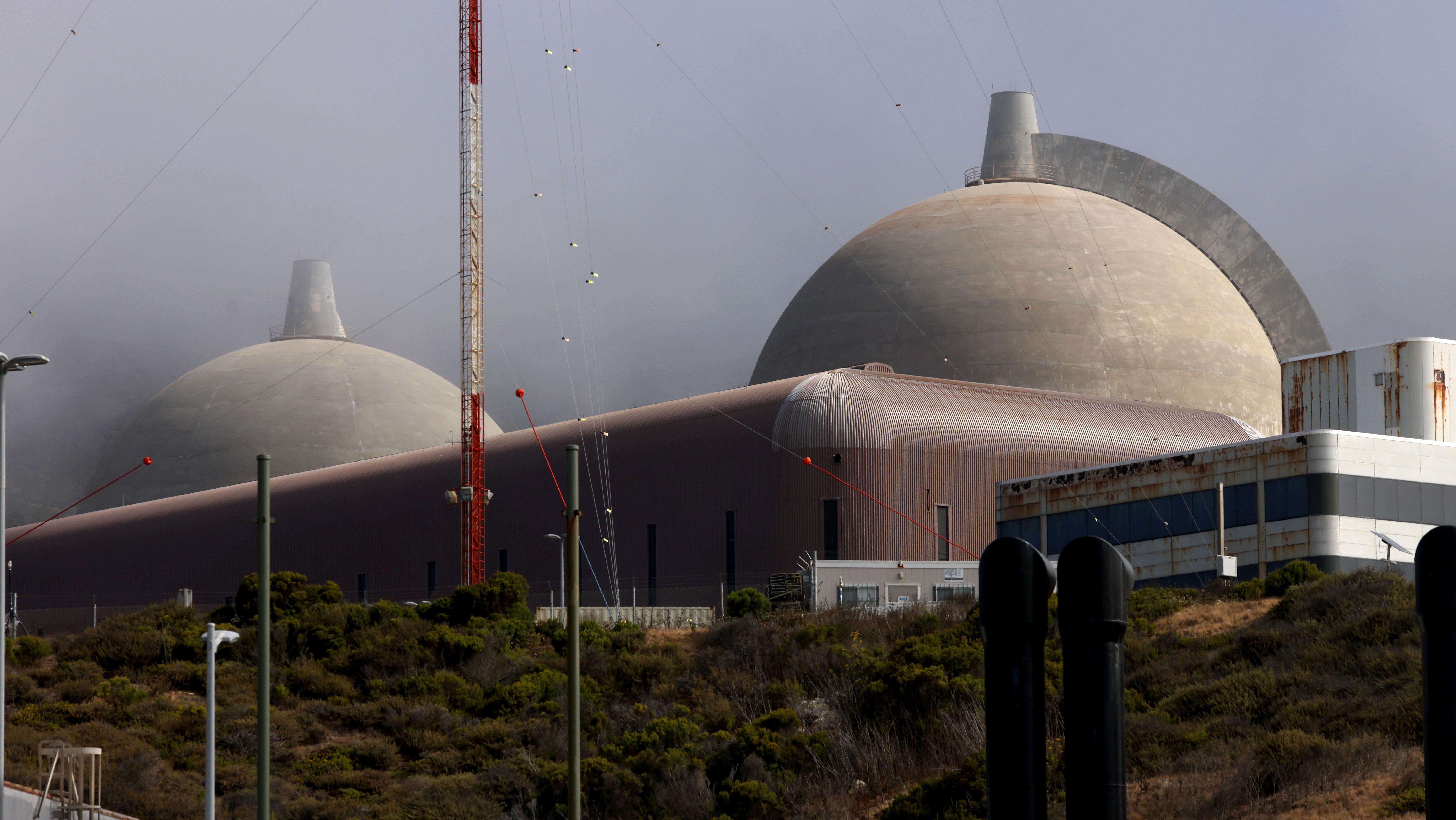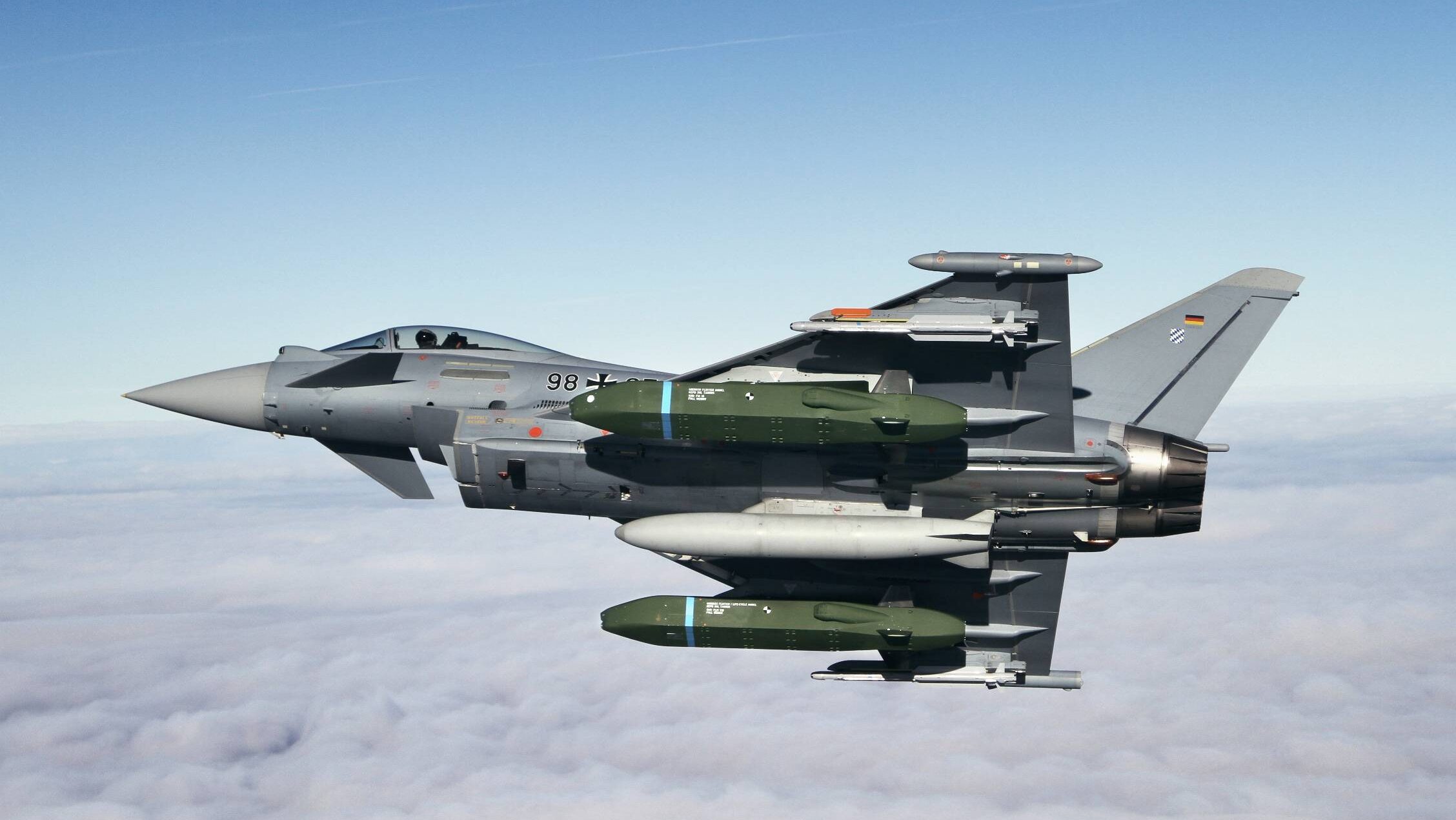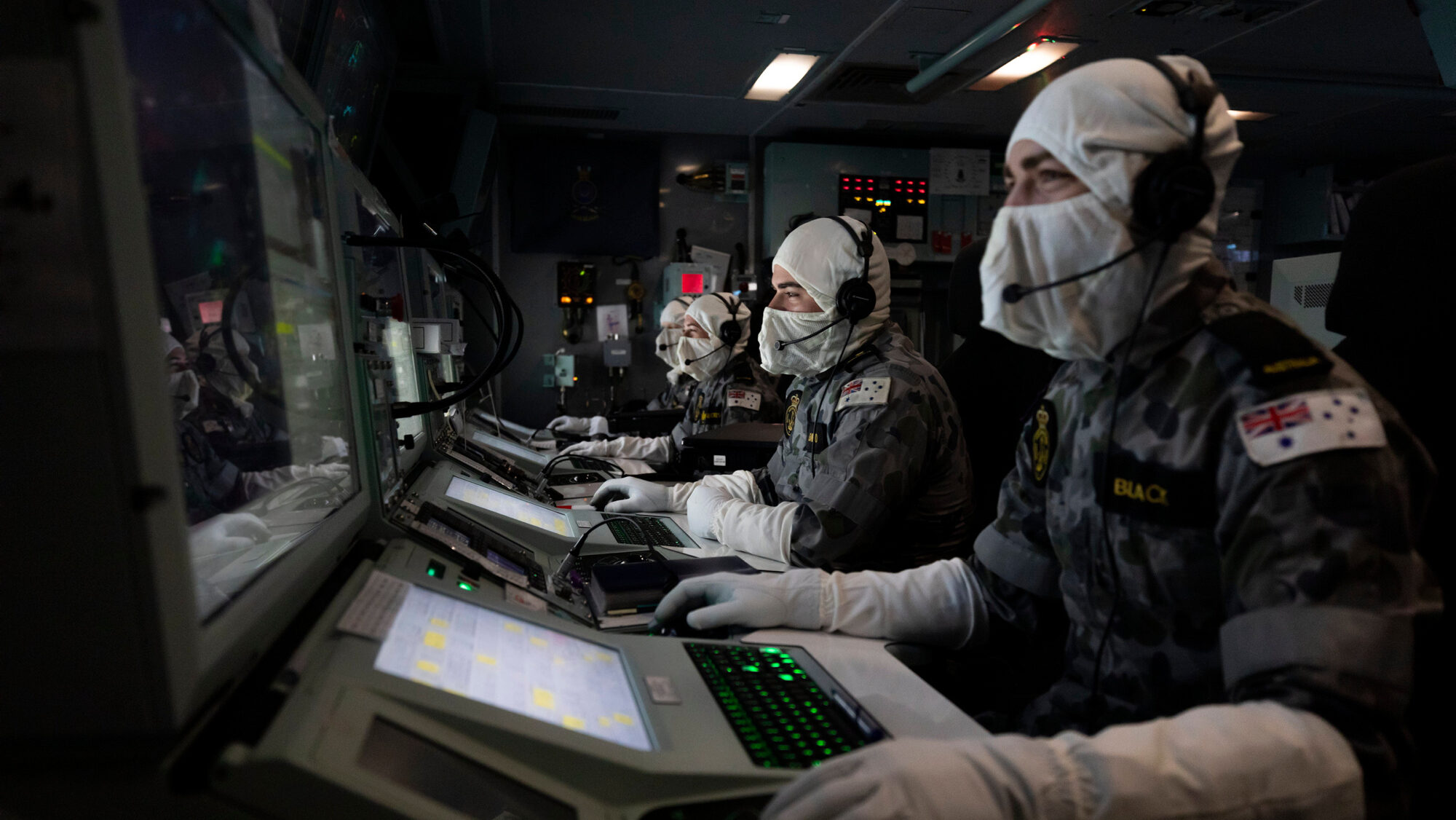US Air Force Staff Sgt. Rhyan Acey performs maintenance on the AN-TSQ-180 Milstar Communications Vehicle July 28, 2021 at the 233rd Space Group, Greeley Air National Guard Station, Greeley, Colo. (US Air National Guard photo by Master Sgt. Amanda Geiger)
WASHINGTON — Given President-elect Donald Trump’s vocal support, chances for the creation of a Space National Guard are high, according to experts, supporters of the plan and several Guard officials.
Clayton Swope, deputy director of the Aerospace Security Project at the Center for Strategic and International Studies, said that there are “pretty good odds for a Space National Guard,” although its congressional approval “might have to wait for the legislative cycle.” However, he added, with Republicans soon to be in control of the House and Senate, it is “hard to foresee any congressional barriers.”
One Guard official agreed, noting that Trump in his victory speech vowed he would keep his campaign promises.
“This will be a very easy one to chalk up in his first 100 days, because it’s been talked about for so many years,” said the official, who spoke to Breaking Defense on the condition of anonymity.
Trump, who established the Space Force during his first term, told the National Guard Association in August that the “time has come” for a Space National Guard. “As president, I will sign historic legislation creating a Space National Guard,” he said then.
Several supporters of a Space National Guard told Breaking Defense it might even be possible for lawmakers to give the green light in the fiscal 2025 National Defense Authorization Act (NDAA), which is still being negotiated, especially if finalization is pushed until after the inauguration.
At the moment, the Senate version of the NDAA supports the Defense Department position to forgo a separate Space Guard in favor of transferring Air National Guard members with space expertise to the Space Force either full or part time, a path opposed strongly by the National Guard and 48 governors of US states and territories. The House version would require DoD to get consent from the governors of the states for the transfers. Neither calls for the establishment of a new Space Guard outright.
Given that the two sides differ, experts and officials said, there is scope for pushing through an agreement based on past bills introduced into both chambers, but never voted upon, that would instead approve the creation of a Space National Guard — the House version sponsored by Rep. Jason Crow, D-Colo.; the Senate version by Sen. Marco Rubio, R-Fla.
But timing is up in the air and if Trump’s first term is anything to go by, nothing is final until the man himself signs on the dotted line.
A second Guard official told Breaking Defense that while space practitioners within the Guard believe that “the Trump team will push” for a Space National Guard, they also are cognizant that “the president-elect has many agenda items to pursue.” For that reason, the official said, there unlikely will be any formal pressure put on Trump by the National Guard Bureau.
Air Force Position, Then and Now
While Secretary of the Air Force Frank Kendall has been a strong supporter of the Pentagon’s position against a separate Space Guard both from a cost and personnel view, the service not always been on board.
In a March 2021 report to Congress, signed by then-Acting Secretary John Roth and obtained by Breaking Defense, the Air Force endorsed a two-pronged organization to handle the issue of Space Force reservists and Guard service members: a Space Force component that effectively would absorb reservists into active duty status as part-time personnel alongside full-time Guardians as well as a Space National Guard.
The report outlined a study of options conducted by the Department of the Air Force (DAF) for a “Single Component Service (SCS)” conducted from February 2020 to May 2020. That study found that “a SCS introduced higher complexity, and irreconcilable legislative and policy barriers due to conflicting Title 32 and Title 10 authorities, when absorbing the current Air National Guard (ANG) construct into the new component.”
Further, according to the report, the study found “because the existing ANG space units are solely Guard manned and equipped, it would result in an unacceptable level of risk to USSF mission execution as analysis estimated most members in the ANG space units would not volunteer to transfer to the new component, creating an immediate gap in capability, and a cost to rebuild mission capability. Moreover, the Space National Guard (SNG) provides crucial and immediate access to the State Partnership Program, enabling USSF’s ability to rapidly build partner capacity.”
However, following the decision by the White House Office of Management and Budget to reject a Space National Guard announced in September 2021, the Air Force in April 2024 released to Congress a new study that supported the White House position.


